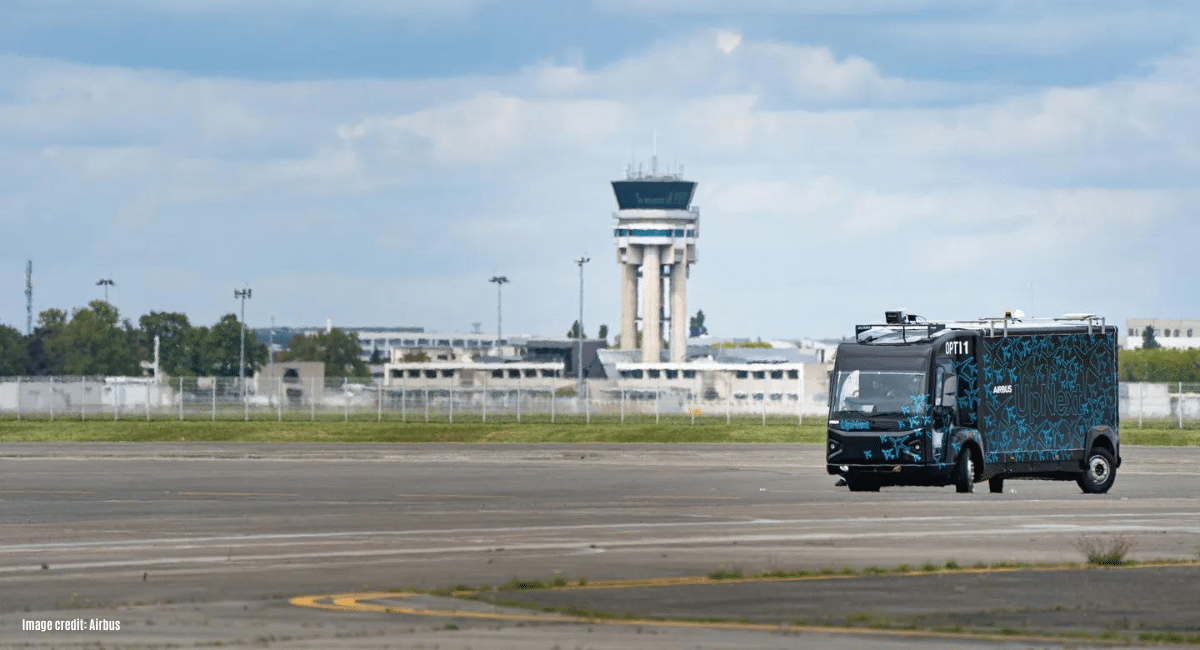The Airbus innovation arm UpNext has launched Optimate, a “flying truck” replicating an A350 cockpit. The fully-electric next-generation autonomy demonstrator emulates the aircraft, rolling down airport runways equipped with an A350 virtual flight deck and ‘computer vision’ devices, including geo-locating sensors, 4D radar and LIDAR, as well as a full flight test installation in the back to monitor the tests.
Developed in partnership with researchers, regulatory bodies, and industry stakeholders, Optimate is designed to both support pilots and increase operational safety. The truck has already been trialled at UpNext’s HQ and Blagnac airport but this year it aims to experience the runways of an international airport.
One key objective for the three-year research project is evaluating how a collaborative map and virtual flight assistant can aid a pilot’s strategic decisions alongside air traffic control and airline operations centres. A second objective is for the test bed to develop and test automatic taxiing grounded in reliable position calculations and unlocking the potential of quantum.
However, the press release detailed the project’s ultimate aim as “perform[ing] a highly efficient automatic ‘gate-to-gate’ mission on an Airbus commercial airliner, featuring 4D trajectory flight management, a tablet-operated connected virtual assistant, and overridable protections – all to support the flight crew.”
Remaining mindful of sustainability, the use of an electric vehicle reduces unnecessary CO2 emissions.
Michael Augello, CEO Airbus UpNext said:
“We are delighted to unveil another innovative demonstrator that reflects our unwavering commitment to pushing the boundaries of aviation. Our ambition is to use the best technologies to make our aircraft even more aware of their operating conditions, analysing it in as much detail as possible to become smart and reliable assistants to pilots, providing them with the optimal assistance. We are confident that this project will contribute to safer and more efficient air travel.”
For more on testing see:
- UK tests “ground-breaking” quantum enabled navigation systems
- “The future of air traffic control: ” Test centre built for Namur’s digital control tower
- Rolls-Royce tests its most powerful business aviation engine yet
